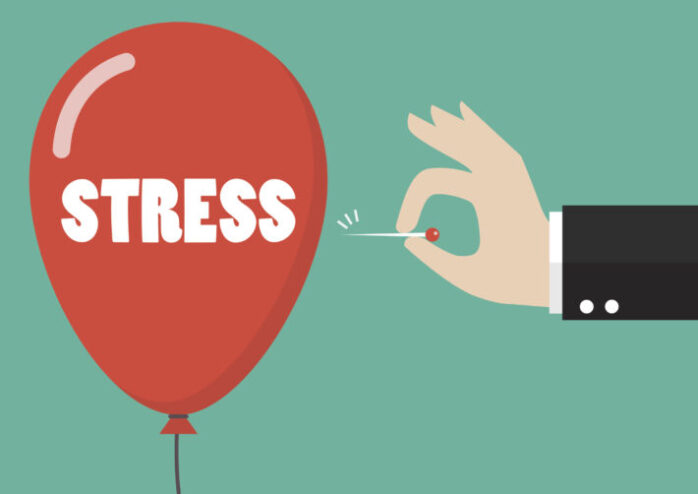
Completing a postgraduate program can fast-track your career and lead to professional success, but you should expect the course to be challenging. When you’re studying at the postgraduate level, you’ll be formulating your own theories and hypotheses, as well as analyzing those put forward by academics, industry leaders, and your peers, learning new skills and gaining a deeper understanding of your sector and specialty.
What Makes Postgrad Study Stressful?

At the graduate level, it isn’t just the course itself that can prove challenging. Many postgrad students are juggling careers and family life too, which means you’ll need to balance your responsibilities. As a result, many postgraduate students experience increased stress levels while they’re advancing their careers, particularly when deadlines are approaching.
By being aware of the extra stress you’re taking on and learning how to manage it, you can ensure that you get the most out of your time as a student and actually enjoy completing your course. Additionally, you’ll find it easier to manage your competing responsibilities and succeed in all areas.
With this in mind, take a look at these five ways to reduce stress while completing a postgraduate degree:
1. Choose the Right Course

First and foremost, you can reduce the amount of stress you’re under by choosing the right postgrad program! Enrolling in a course because it’s relevant to your industry or because it’s seen as impressive isn’t always enough. If you’re not genuinely interested in the content, you won’t be motivated to put in your best work. Furthermore, spending time studying something you’re not passionate about can seem like a chore and may affect the quality of your work.
As well as choosing a subject and program that you’re interested in, be sure to choose a course format that works with your lifestyle. Professionals working in a fast-paced environment may find that studying remotely affords them more flexibility than a traditional classroom environment, for example.
Fortunately, the range of reputable online programs is increasing all the time and you can now study almost any subject remotely. If you’re working as a Registered Nurse, for example, click here for more info about online programs, such as the BSN to MSN-FNP or BSN to DNP-FNP. With online postgrad programs catering for professionals in all industries, you can reduce the stress of studying at this level by choosing a course format that works for you.
2. Get Support

Completing a postgrad course is a big undertaking and you’ll need to devote a significant amount of time to your studies. Due to this, it’s important to seek support from those around you. If your partner, extended family and/or friends understand the additional pressure you’re under, they’ll be more able to offer practical and emotional support.
Similarly, talk to your employer before you enroll on a postgrad program. If you plan to keep working while you’re studying, getting their support can be enormously helpful. They may be able to ensure that you can take time off when important deadlines are approaching, for example. Additionally, more experienced colleagues may be willing to provide useful guidance and information as you expand your skills.
3. Practice Time Management

As you take on more responsibilities, your time is going to become more valuable than ever before. However, effective time management will ensure that you’re able to meet deadlines and uphold your professional, academic and personal responsibilities.
There are numerous time management strategies you can use to increase efficiency and optimize your organizational skills, so be sure to find ones that work for you. When you’re completing an assignment or project, for example, the Pomodoro technique can be a great way to maintain your focus and enhance the quality of your work.
Alternatively, the Eisenhower Matrix can be used to help you prioritize tasks and get things done more efficiently. For some, a Kanban board is the most effective way to manage their workload, while others find that the Pareto Principle is the most useful time management technique.
4. Maintain Your Hobbies

When you take on more responsibility, you inevitably have less time to spend on other things. When you’re working, studying and taking an active role in family life, for example, there may be less time to focus on hobbies and other interests.
Although it’s understandable that you may need to scale back your input in these areas, giving up your hobbies altogether isn’t always a good idea. No matter how hard you’re working, it’s vital to make time for the things you enjoy too. For many people, hobbies are a form of downtime and a great way to let off steam, which means they also help you to reduce your stress levels.
When you become absorbed by a new book, for example, it takes your mind off of other things, such as work or deadlines. Alternatively, going for a run or hitting the gym can clear your mind and reduce anxiety, which makes it a great way to combat stress.
5. Use Stress Reduction Techniques

Using techniques that are designed to reduce stress can be useful at any time, but they’re particularly effective when you’re feeling overwhelmed or under pressure. Both mindfulness and meditation are known to stress relaxation techniques that can be used anywhere, which makes them extremely versatile. Similarly, learning how to take deep ‘belly breaths’ can stop the physiological impact of stress in its tracks and help you to feel calmer and in control.
When you find stress reduction techniques that work for you, be sure to practice them regularly. This will enhance their impact and help you to maintain consistently low-stress levels.
Becoming Aware of Your Stress Triggers

When you can recognize the early signs of stress, you can take action more quickly and limit the effect it has on you. If you find it hard to concentrate when you’re overwhelmed or your appetite diminishes, for example, you’ll know that it’s time to take a step back.
By training yourself to look out for these unique triggers, you’ll be more aware of stress and the effect it has on you and be able to implement healthy and effective techniques to manage your response.











